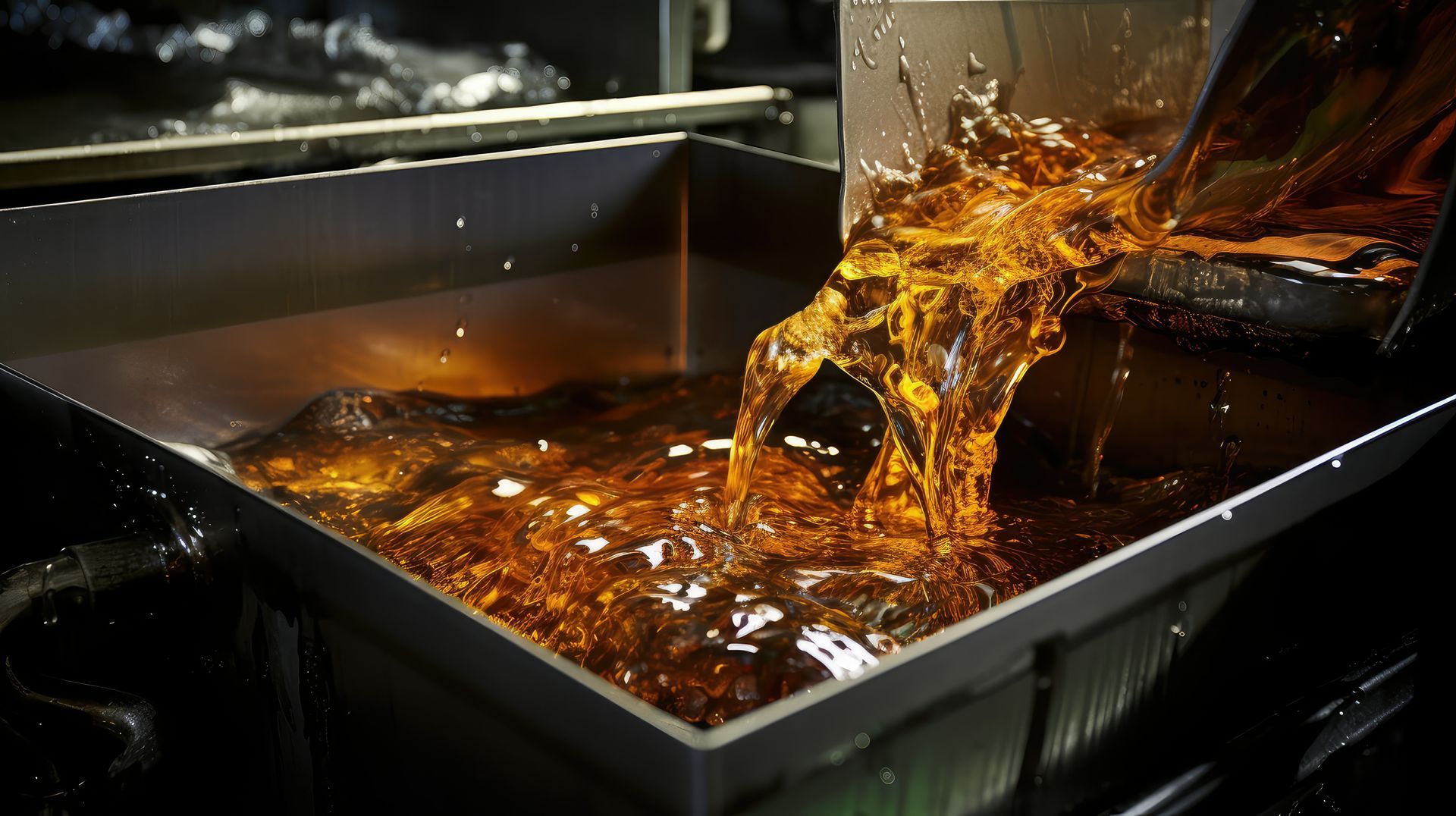How Grease Traps Contribute to Your Facility's Sustainability

In today's world, sustainability is not just a buzzword, it's a necessity. Businesses, especially in the food service industry, can play either a positive or negative role depending on their practices.
Some often overlooked aspects of sustainability include the management of fats, oils and grease (FOG) in commercial kitchens and fryer oil disposal. Implementing effective grease trap systems and maintaining them responsibly, and recycling used fryer oil, can significantly contribute to a facility's sustainability efforts.
The Environmental Impact of FOG
Fats, oils and grease are natural byproducts of food preparation and cooking. While they may seem harmless when washed down the drain, they pose significant threats to the environment when not managed properly. FOG can accumulate in sewer systems, leading to blockages that disrupt the flow of wastewater. These blockages can result in sewer overflows, which can cause raw sewage to spill into streets, rivers and other natural bodies of water.
When FOG enters the environment, it can lead to a host of problems:
- Water Pollution:
Raw sewage contains harmful pathogens and pollutants that can contaminate local water sources. This pollution can have dire consequences for aquatic life, including fish and plant species, disrupting ecosystems and harming biodiversity.
- Health Hazards: Contaminated water can lead to health risks for humans, including gastrointestinal diseases, skin infections and respiratory issues. Communities that rely on local water sources for drinking and recreational activities are particularly at risk.
- Increased Treatment Costs: Municipal water treatment facilities often struggle to treat water containing high concentrations of FOG. This strain may increase operating costs, reduce facility longevity and increase treatment energy demands. The higher price of water treatment can lead to increased water rates for consumers as municipalities invest in costly infrastructure improvements to address the problem.
Alleviating Strain on Municipal Water Treatment
By properly managing FOG through grease traps, businesses can lessen the strain on municipal wastewater treatment systems. Grease traps are designed to capture FOG before it enters the sewer system, allowing water to flow freely while preventing blockages. Regular maintenance and cleaning of these traps help them function efficiently, keeping FOG levels low.
When businesses take responsibility for their grease management, they not only protect the local environment but also contribute to the overall sustainability of the city. In Atlanta, where a growing population puts pressure on water resources, responsible grease trap management is crucial. By preventing FOG from entering the municipal system, businesses can help maintain the integrity of city infrastructure and waterways and reduce the need for expensive treatment upgrades.
Eco-Responsible Wastewater Treatment
Choosing a grease trap cleaning and waste oil recycling company that prioritizes eco-responsibility is necessary for maintaining a sustainable facility. Some companies, including Southern Green Industries, now offer eco-friendly services that go beyond simple grease removal. By utilizing advanced wastewater treatment methods, we can minimize environmental impact and promote sustainability in our operations.
Here are a few key ways we, and by extension our grease trap cleaning and waste oil recycling customers, contribute to a greener future:
- Waste Oil Recycling: Instead of discarding the collected grease and oil, eco-friendly companies recycle these materials, converting them into low-emissions biodiesel. This process not only reduces waste and air pollution but also supports the production of renewable energy sources.
- Innovative Treatment Solutions:
Advanced wastewater treatment methods allow companies to break down FOG into less harmful substances. These processes can further reduce the environmental impact of FOG disposal so that only clean water is released into the environment.
- Sustainable Practices: Eco-conscious grease trap cleaning companies often implement sustainable practices in their operations. This can include using biodegradable cleaning agents, reducing water consumption during the cleaning process and employing energy-efficient equipment.
The Greener Choice for Your Business
As a business owner in the food service industry, you have the power to make a positive impact on your community and the environment. By partnering with a company that emphasizes sustainability, such as one focused on eco-responsible wastewater treatment and grease recycling, you can align your operations with green practices.
Moreover, being proactive about FOG management can enhance your business's reputation. More consumers are opting to patronize businesses that demonstrate a commitment to sustainability. Showcasing your responsible practices can set you apart from the competition.
Invest in Responsible Grease Trap Cleaning and Used Oil Recycling in Atlanta
Investing in responsible grease management and waste fryer oil recycling not only protects your facility but also helps pave the way for a cleaner, greener Atlanta.
Get your free quote from Southern Green Inc. or request one-off grease trap maintenance and cleaning by calling (404) 419-6887.
Contact us Today for a FREE Quote
We are committed to making grease trap cleaning and fryer oil recycling as clean and easy as possible. If you’d like to learn more about our services or get a quote, give us a call at (404) 419-6887.



